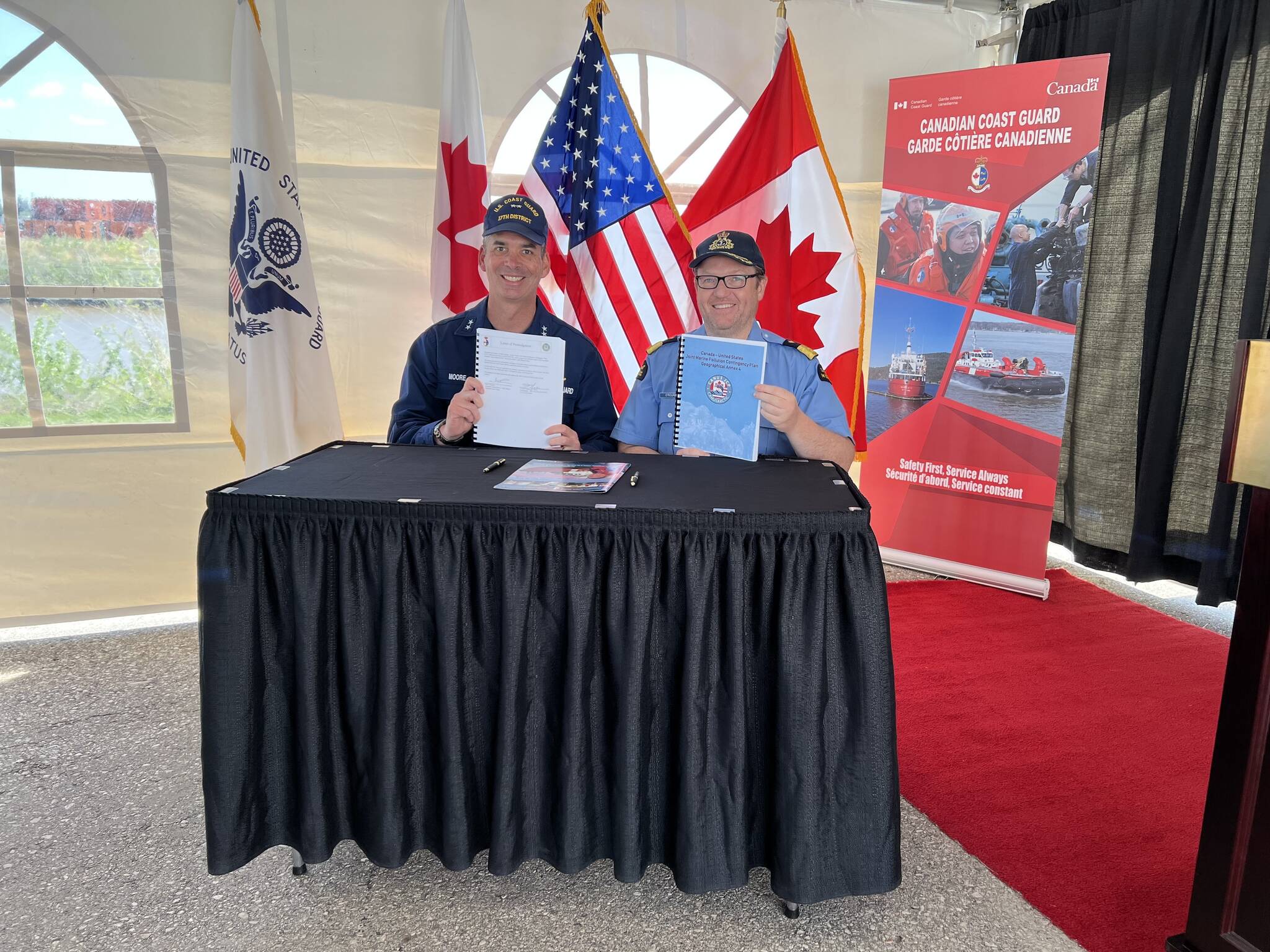U.S. Coast Guard District 17 commander Rear Adm. Nathan Moore traveled to the Northwest Territories of Canada last week to meet with the district’s Canadian counterparts.
The two services signed the Beaufort Sea Annex to the national-level Canada- U.S. Joint Marine Pollution Contingency Plan, updating the decades-old plan for major pollution incidents in border waters.
“The primary reason is that our agreement with the Canadians says that these annexes should be reviewed and updated not more than 5 years. It’s been way more than five years,” said Mark Everett, D17’s joint response team co-chair. “There’s a little bit of change in the maritime traffic that we want to be thoughtful of and responsive to.”
[Jan. 6 witness: Trump ‘detached from reality’ over election]
The plan has been in place since 1983 and covers five different regions. The Beaufort Annex, covering the Beaufort Sea, hasn’t been updated since 2007, Everett said, with other priorities taking up manpower and resources.
“It’s not a huge change in spill or pollution threat. It is a foundation for us to better understand what the threats and risk factors are,” Everett said. “It wasn’t really a revision, it was a complete rewrite. We basically threw the old one away and started from scratch. It was a significant project.”
The Canadian Coast Guard also split off the Arctic into its own administrative region within the service in 2018, according to the CCG’s site. The meeting was a good opportunity for D17 personnel to meet with their Canadian counterparts, Everett said. Assistant Commissioner Neil O’Rourke helps lead the CCG’s Arctic Region, according to a USCG news release, and met with D17 personnel during the event.
“When you bring new players to the table as the CCG has done it’s important to reach out and make contact,” Everett said. “You don’t want to wait until a bad day to meet your partner.”
While there isn’t much of an increased threat of major spills in the Arctic, Everett said, the nature of the traffic is changing somewhat with increased cruise ship traffic and others attempting to traverse the Northwest Passage.
“One of the challenges here in Alaska is most of our assets are not in the far north,” Everett said. “There’s virtually nothing on the North Slope.”
Differences in the legal responsibilities for a spill in the two country’s legal codes differentiate the nature of a spill response, Everett said, with the CCG taking direct control over all spills north of 60 degrees of latitude, while in the U.S., the responsible party, or creator of the spill, shoulders the responsibility of cleaning it.
Other changes to the annex included making it easier to update contact information in the document, so that as names and numbers changed, it’d be a simpler process to keep them current, Everett said.
Members of both coast guards also carried out planning for mission profiles such as search and rescue, mass rescue, navigational safety, waterways management and marine environmental response, according to the news release.
“I think one of the great things about working with our Canadian partners is that there isn’t a cultural barrier there really,” Everett said. “Working with the Canadians, it seems very natural. The communication is excellent, the rapport is natural.”
Everett said he’s involved in setting up the next meeting to tighten the bonds between the two services in 2023.
• Contact reporter Michael S. Lockett at (757) 621-1197 or mlockett@juneauempire.com.

